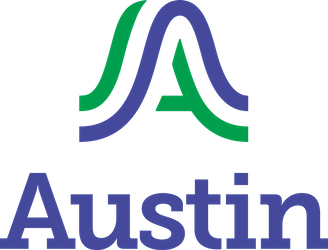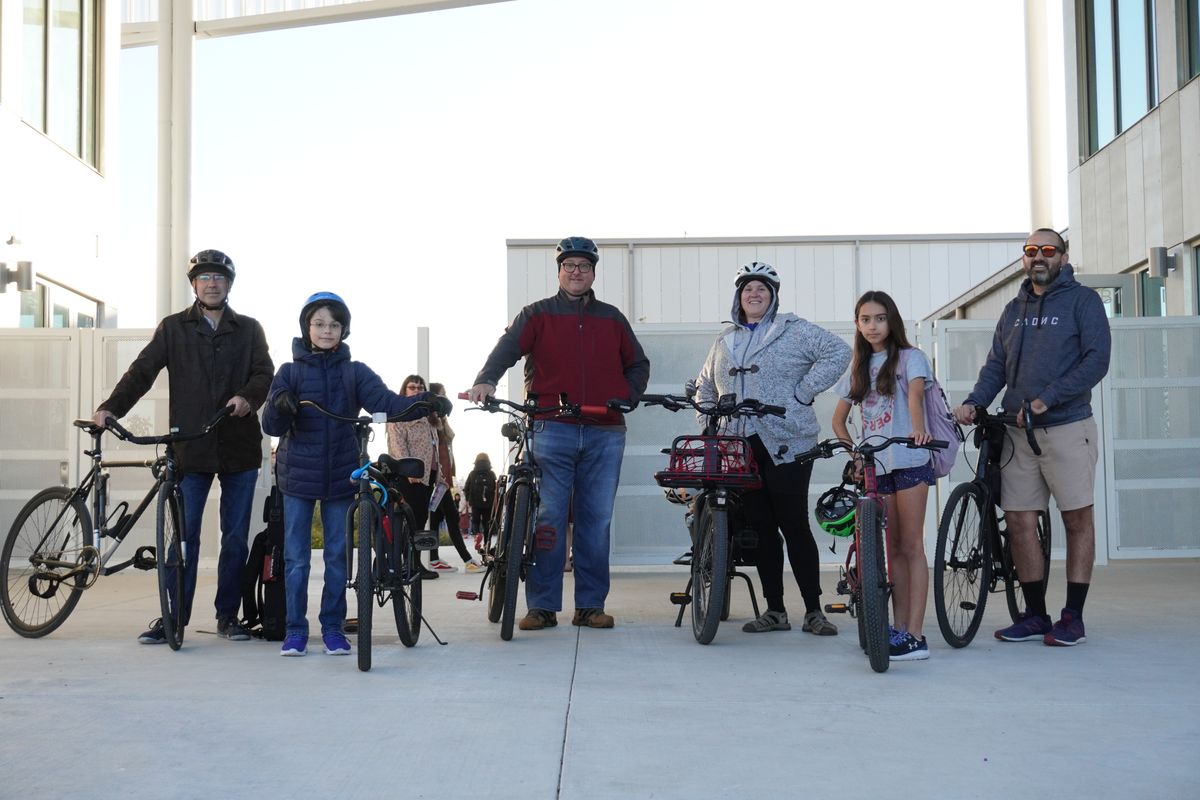Get Moving with GoGrant – Up to $7,500 in Financial Assistance
The 2026 Spring application period will be open from Feb 3 - Feb 24!
Thinking about applying, but have questions? Here are some resources:
Join a drop-in GoGrant info session on Feb 10 between 10 am and noon Join a drop-in GoGrant info session on Feb 12 between 1 pm and 3pm
Want alerts and reminders when applications open? Sign up for the GoGrant email list
The GoGrant program from Movability is designed to help shift the way Central Texans commute by supporting projects that result in fewer drive-alone trips. GoGrant provides financial assistance of up to $7,500 to employers within the Austin city limits with the goal of creating lasting changes in transportation habits. All funded projects must demonstrate a clear outcome: fewer people driving alone and more people choosing to use carpooling, biking, vanpooling, and transit to get where they're going.
GoGrant has two funding cycles each year, in the first and third quarters. There are three grant types:
- INFRASTRUCTURE | Projects that feature materials/goods such as permanent structures (eg. bike racks, lockers, etc.)
- PROGRAMMATIC | Incentives and policies that encourage active commuting (eg. transit passes, vanpool programs, etc.)
- MOBILITY PLANNING | Developing, researching or analyzing custom mobility plans (e.g., TDM Research & Auditing, Communications, Outreach or Marketing Planning)
"Your continued support has directly provided bicycles to 45 children this year, and we are incredibly thankful to Movability and the whole team!"
-2025 GoGrant recipient Yellow Bike
GoGrant funding is provided by The City of Austin, the Climate Pollution Reduction Grant program, and from donors like you. Learn how to make a tax deductible donation to GoGrant.



Programmatic GoGrant recipient General Marshall Middle School is piloting a bike-to-school support program with their funding
2025 GoGrant Recipients:
Infrastructure:
- ATX Kids Club
- Austin Asian Impact
- Austin Youth River Watch
- Mobile Loaves and Fishes
- Odom Elementary (AISD)
- Stargazer
- Toybrary
- United Christian Church of Austin
- Viva Bikes Austin!
- Yellow Bike
Programmatic:
- Austin Theatre Alliance
- Ballet Austin
- Child Inc.
- Dream Come True Foundation
- Future Front
- Generation SERVE
- Grassroots Leadership
- Integral Care
- Joon Community
- Museum of Human Achievement
- Saiva
- Wayside School
Program Rules
Businesses or organizations applying must be located within Austin, TX city limits or ETJ (extraterritorial jurisdiction)
Applicants must submit an application that will be evaluated and scored
If awarded funding, each applicant agrees to soon become or remain a Movability member
If applicable, applicants must be able to have an agreement in place with the property manager to install infrastructure
Frequently Asked Questions
1. Who is eligible to apply?
Applicants must be located within one of the six Central Texas counties (Bastrop, Burnet, Caldwell, Hays, Travis, and Williamson Counties). Very small businesses or organizations, those with up to 49 employees or less than $10 million in annual revenue, are eligible to apply for all three types of grants.
Businesses with more than 49 employees or above $10 million in annual revenue are only eligible to apply for planning projects.
2. Do I need to be a member of Movability to apply?
Your business or organization does not need to be an existing member, but must be willing to become a member upon receiving assistance funds. Your first year of membership will be covered by the grant, after which you will have the option of renewing membership.
3. What if I have a mobility need that's not eligible for funding?
Contact us to discuss what you have in mind!
4. Can nonprofit organizations apply?
Yes!
5. If my business or organization receives funding, what reporting requirements must I meet?
To receive funding, recipients must agree to measure the impact of the project. This will typically require a measurement of pre-grant activities and a measurement of post-grant activities.
For example, if a business wants funds to discount dockless scooter trips, they should report on the number of scooter trips before the discounts were provided and then after the funds are spent, the number of scooter trips that were taken with the discount.
Movability will work with each business or organization to determine the best reporting metrics for each project.
6. Can I pay staff with GoGrant funds to manage our project?
No, funds may only be used to pay for material goods or the installation of those goods. Contact us if you have questions regarding a specific project.
7. Can I work with another business to submit a joint application? And do we get more funding if we submit a joint application?
Yes, you can apply a with a joint application. Depending on the project type you may be eligible for additional funds over the $7,500 grant cap. Contact us if you are considering a joint application.
8. Do I need to submit a match to be awarded funding?
No.
9. Can I be awarded multiple grants?
A business or organization may only receive funding for one project per grant cycle. However, if you have several different projects in mind, you may submit a separate application for each project.
10. Can funds be used to pay for the installation of project goods?
Definitely! As long as the project infrastructure meets the outlined requirements of the program, you may use funding toward the installation of goods like bike racks, bike repair stations, and storage.
12. Who has received GoGrant funding in the past?
- AGE of Central Texas
- Austin Creative Reuse
- Austin Theatre Alliance
- Ballet Austin
- Cherrywood Coffeehouse
- Chez Zee American Bistro
- dwg.
- Front Steps Inc.
- Hillside Farmacy
- Inn Cahoots
- Something Cool Studios
- Urban Roots
- Young Voices of Austin
13. What is the definition of an infrastructure project?
These are projects where funding is spent on a useful and permanent structure that will result in more people using active modes to travel to that location. The outcome for infrastructure projects should be a net reduction in drive-alone trips to the grant recipient's location. Examples of potential infrastructure projects include but are not limited to:
· Bikes
· Bike racks or lockers
· Bike loan program
· Repair station
· Designated parking for micro-mobility options
· Bike Stair Ramp (Runnels)
· Covered parking for bikes
· Bicycle oriented vending machines
· Shade structures for waiting for transit or ride hailing
· Water bottle filling station
· Skateboard rack
All projects with a physical component must include a provision for a small sign referencing Movability and GoGrant. All infrastructure projects must be compliant with city code and ordinances, and proper municipal permitting shall be followed.
Types of infrastructure projects that will not be considered:
· Beautification projects
· Construction projects that are not directly related to active or micro-mobility (placemaking, landscaping, lighting, security cameras)
14. What is the definition of a programmatic project?
Programmatic projects use incentives and policy to encourage use of active and non-drive alone transportation modes. The outcome for programmatic projects should be a net reduction in drive-alone trips to the grant recipient's location. Examples of potential programmatic projects include but are not limited to:
· Discounts/subsidies for mobility options
· Transit pass purchases for employees who are not already using transit*
· Micromobilty pass purchase programs
· Subsidized vanpools
· Gamification programs to incentivize active and micro-mobility options
· Education and/or marketing programs
* Are you looking for help purchasing passes for employees or clients who already use transit? The MovePass program is designed to help with bulk transit pass purchasing for organizations whose employees or clients are already using transit.
15. What is the definition of a mobility planning project?
Mobility planning project funding is for focused professional consulting services received from Movability. Please note that larger employers (more than 49 employees or annual revenue above $10 million) are only eligible to apply for this type of funding. The outcome for mobility planning projects should be a net reduction in drive-alone trips to the grant recipient's location. Examples of Mobility Planning projects include but are not limited to:
· Survey employees and analyze their commute challenges
· Inventory available employer transportation resources and available and appropriate options
· Map employees’ origin and employment destination to inform programmatic recommendations
· Propose new strategies to mitigate employee challenges while meeting the employer/organizational goals
